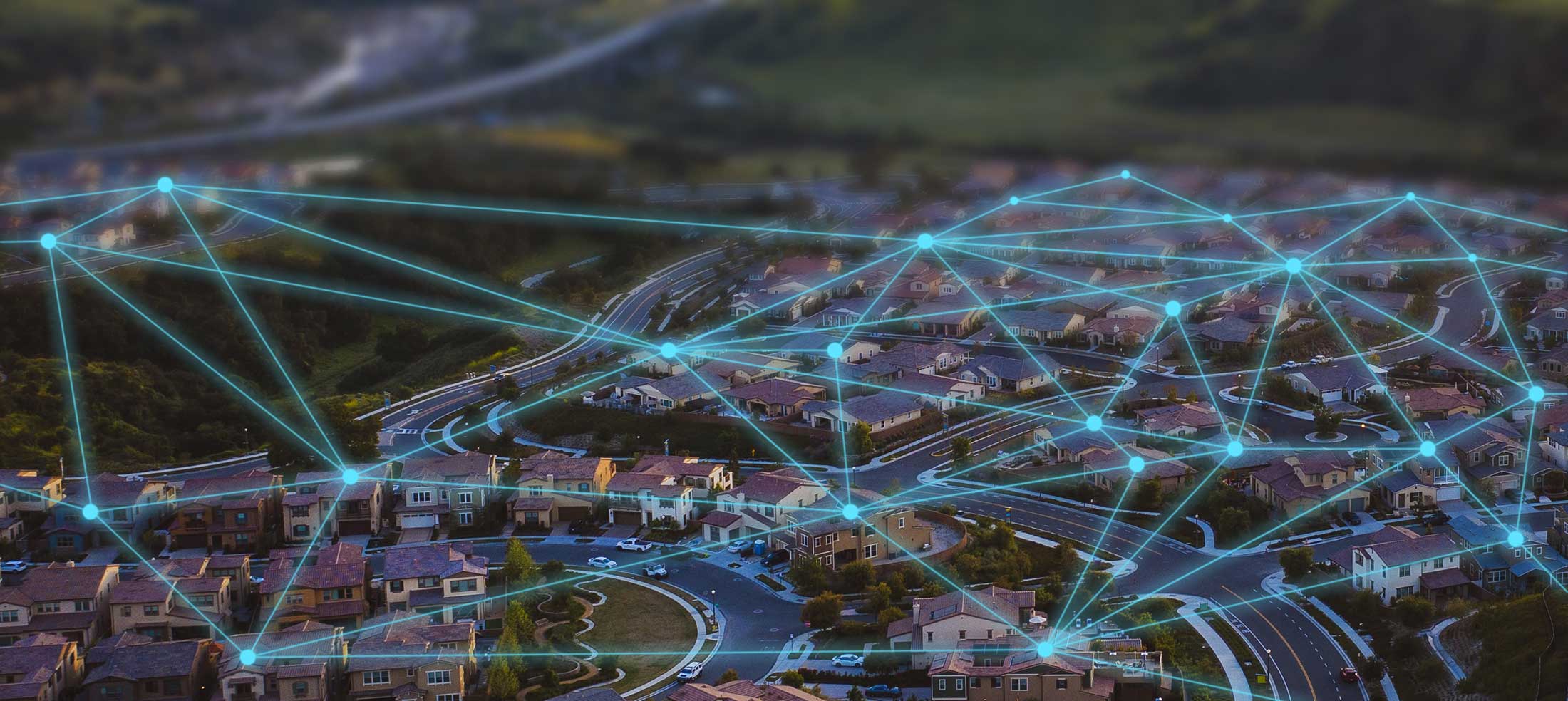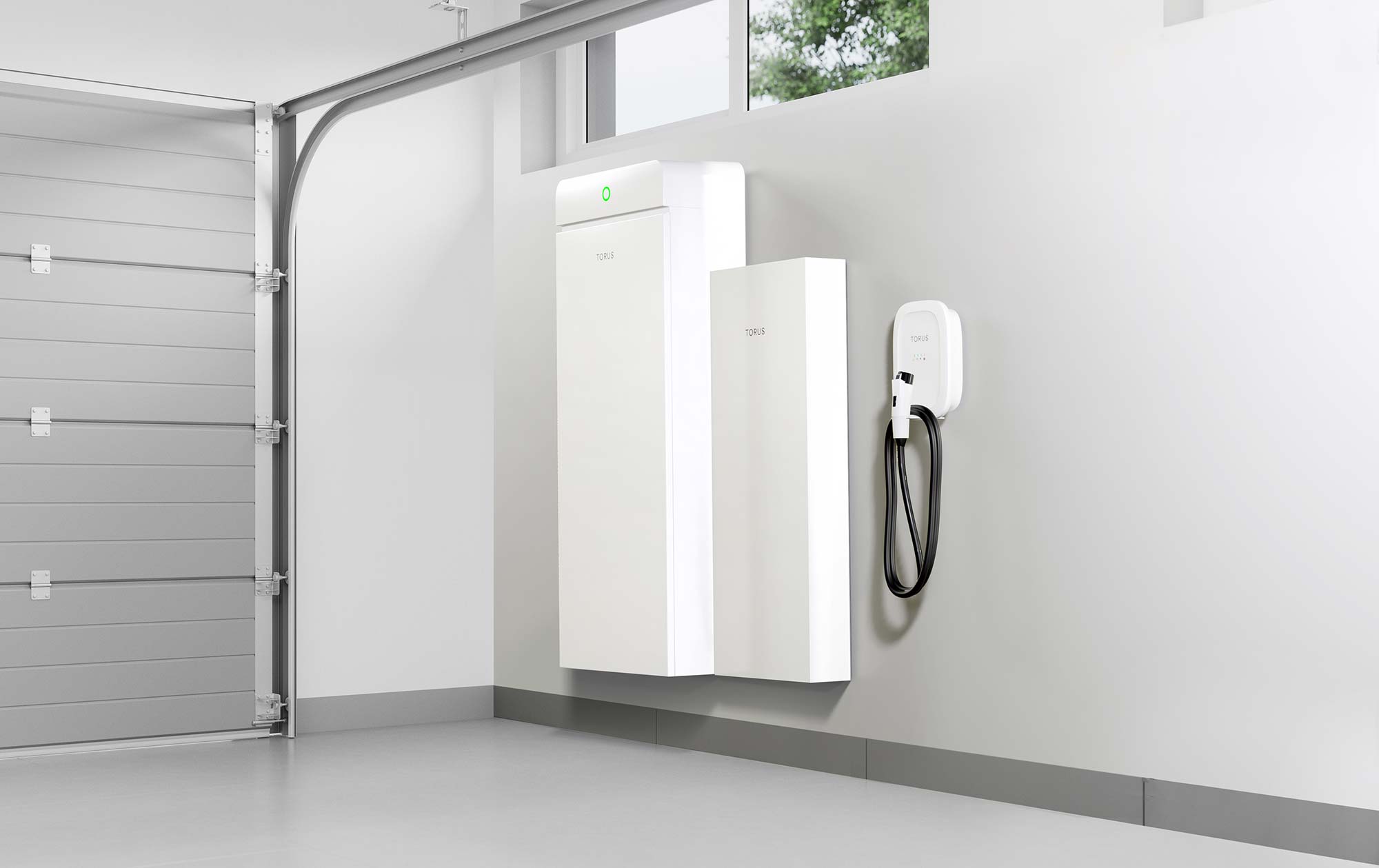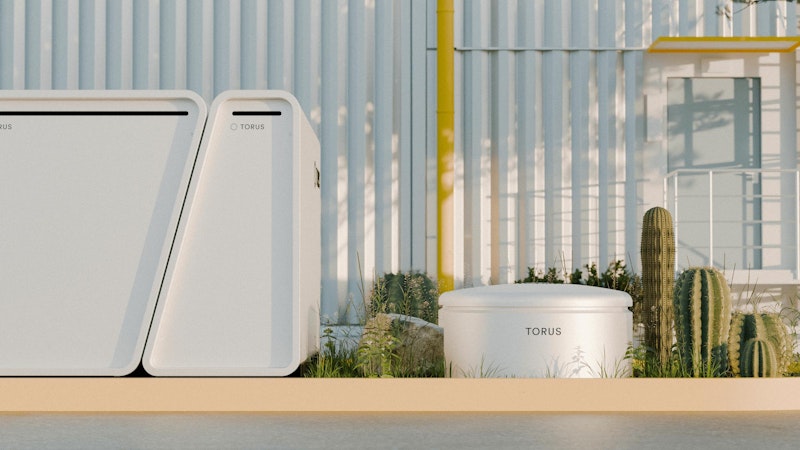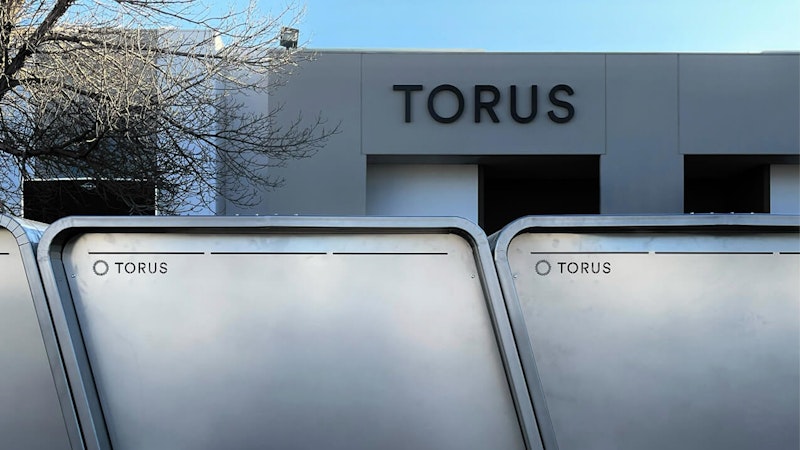Virtual power plants (often referred to as VPPs) offer an exciting new way to create, store, and manage energy at the community and municipal levels. They’re a powerful tool for decarbonizing our economy and offer many exciting benefits for individual homeowners, large cities, and everyone in between. We’re breaking down everything you need to know about VPPs and why they’re poised to play a significant role in the future of energy.
Key Points
- VPPs are a significant tool for decarbonizing our economy and fixing current issues with the grid.
- They work by aggregating individual energy production and storage points into one large reservoir of electricity.
- They’re great at lowering energy costs and making communities more energy secure.
-
The Torus Station includes powerful VPP capabilities that benefit both homeowners and utility companies.

What Are the Current Challenges Facing the Grid?
You’ve seen it on the news—when temperatures spike during summer months, and homeowners crank the A/C, electrical grids around the country struggle to meet surging demand from increased energy use. This strain on the grid can lead to energy instability for homeowners, ranging from flickering lights and inconvenient brown-outs to full-on blackouts.
Why does this happen? Simply put, balancing supply and demand is tricky business for utility companies. And, the increasing popularity of EVs, induction stoves, heat pumps, and other electrified appliances puts even greater pressure on our aging grid infrastructure. To manage these spikes in demand, providers have to pay a hefty premium to purchase electricity from other utility companies on the open market. They might also consider utilizing “peaker plants”— electrical plants that utility operators rely on specifically during periods of high demand. The problem? These facilities often provide power that is both high in cost and greenhouse gas emissions.
What is a Virtual Power Plant (VPP)?
In the simplest terms, a virtual power plant is a group of individual energy production and storage points combined into a single network of available power.
Traditional power plants are a single source of energy production. They make electricity and distribute it to the homes and businesses they serve. But power plants aren’t the only places that produce electricity nowadays. Instead, many homes and businesses have their own solar panels and battery systems. A virtual power plant aggregates these many sources of electricity into a reservoir of power that can discharged to help meet the needs of the grid. In some cases, homeowners can even connect their smart thermostat to a VPP, allowing the power company to adjust the temperature of their home by a degree or two to help lower demand on the grid. EVs may also be used as a reservoir for stored power, similar to a home battery. How are virtual power plants controlled? Through special software managed by the utility company.

How Do Virtual Power Plants Solve The Grid’s Challenges?
Virtual power plants help utility companies address several current issues facing our electrical grid. Through their unique approach to creating and storing energy, VPPs make electricity cheaper, greener, and more reliable for homeowners and businesses. By expanding energy production capabilities, they also help the grid accommodate more EVs and electric appliances, allowing us to electrify our lives more quickly.
Increased Reliability
Extreme weather events and grid instability are on the rise around the country. Virtual power plants address this issue in numerous ways. For grid systems struggling to meet demand, VPPs can quickly expand capacity. Building new power plants is often a slow and expensive process. Because virtual power plants are dispersed among many individual points, they’re much quicker and easier to create. For areas frequently dealing with grid outages due to inclement weather, VPPs help increase outage protection and resilience. During an outage, homes, businesses, and facilities can use their solar and battery systems to keep their power running until the larger grid is restored.
Lower Costs
Virtual power plants often lead to lower energy costs for participants in the VPP and communities as a whole. Homes and businesses contributing to a VPP see the most direct reduction to their electricity costs. In most cases, when a utility company utilizes your storage or production capacity, they provide a cash payment in return. Some providers even offer up-front incentives to help cover the cost of new solar panels or battery storage in exchange for participation in their VPP. Virtual power plants can also lower community-wide energy costs in a number of ways. First, they excel at increasing grid capacity cost-effectively. Second, they allow grid operators to utilize more renewable energy sources. Solar, wind, and other renewables are often cheaper and less prone to substantial fluctuations in price than fossil fuels. In both cases, utility companies often pass some of these savings along to customers through less expensive electricity rates.
Decarbonization
Traditional power plants burn fossil fuels to create power. Doing so leads to significant CO2 emissions, which contribute to global warming. By aggregating many individual batteries, solar arrays, wind turbines, and other renewable energy sources, virtual power plants allow grid operators to provide cleaner, more environmentally friendly electricity to their customers. As VPPs continue to grow, so will their positive impact on the environment.
Electrification
Electrification typically refers to the process of switching machines, appliances, and vehicles to run on electricity rather than other energy sources. As EVs, heat pumps, induction stoves, and other electric alternatives gain popularity, demand on the grid will increase. VPPs are well-positioned to handle this increased demand as we adopt better technologies for the planet.

How Do Homeowners Benefit From VPPs?
Most homeowners greatly benefit from VPPs, both directly and indirectly. Even if you aren’t actively participating in one, VPPs can mean lower energy rates, cleaner electricity, and increased grid stability. If you do have a solar and battery system, enrolling in a VPP can lower your energy costs, as utility companies typically provide a cash payment whenever they utilize your solar panels or batteries. Many utility companies also offer upfront incentives that make installing new solar and battery systems cheaper for homeowners.
What Should You Consider Before Joining a VPP?
While VPPs provide many benefits to homeowners, there are a couple of items to consider before enrolling in one. For starters, joining a VPP requires that you relinquish some control over your stored energy. In most VPP agreements, your utility provider can pull from your battery whenever it needs assistance balancing the grid. It’s important to understand how frequently you can expect your battery to be called upon and if there are limits to how much power can be drained at one time.

Torus Station core mounted in gararge
Does the Torus Station offer VPP capabilities?
Yes, it does! The Torus Station is one of the very smartest solar and battery systems around, and its VPP capabilities are no different. Dynamic controls and lightning-fast response times make Torus an excellent choice for utility companies. And, for Torus customers, joining a VPP means more resilient communities and even greater energy savings.
The Takeaways
Virtual power plants are an exciting technology well positioned to modernize our grid infrastructure. They’re a great way to quickly expand capacity while making energy less expensive and more reliable for communities. Even better? They offer substantial financial benefits for homeowners looking to install a solar and battery system.
You May Also Like

Press Release
Torus and First Colony Mortgage Sign Letter of Intent to Power Sustainable Home Development
Torus and First Colony Mortgage are building Utah's largest clean energy community, integrating solar and battery storage into 650 homes.

Press Release
Torus Receives Commercial Energy Storage Approval for Rocky Mountain Power's Wattsmart Battery Program
Following recent MOU for a 70-MW demand response partnership, Torus technology is now certified for commercial deployments from 30 kW to 1.2 MW
